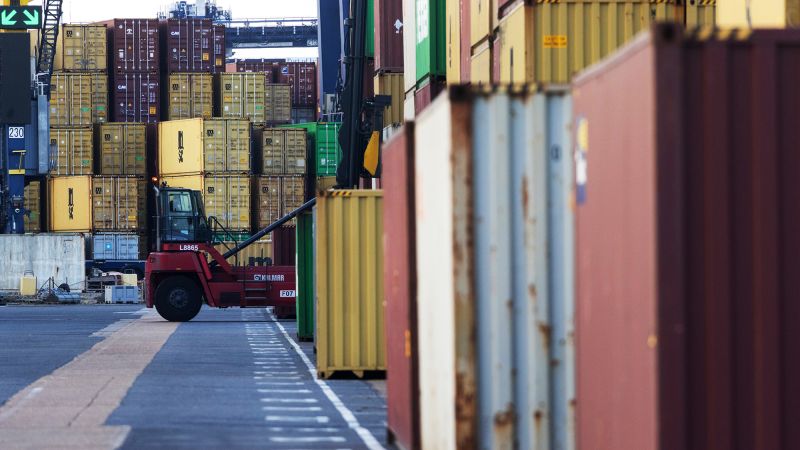In recent months, economic conditions in Germany and Britain have seen a significant downturn, revealing an alarming trend amid global trade tensions fueled by United States President Donald Trump’s administration. The implementation of near-universal tariffs has created a ripple effect throughout the global economy, prompting concern among businesses and economists alike. The financial implications of these import levies are becoming increasingly evident, with businesses in both Germany and the UK reporting decreased production levels for the month in question. This problem highlights the growing anxiety surrounding trade policies and their impact on economic stability within major economies.
According to comprehensive surveys of purchasing managers released recently, the private sector activity in these two nations has contracted. Germany, notably Europe’s largest economy, and the United Kingdom both registered declines in growth, reflecting a wider trend that could have serious consequences for the economies involved. The surveys conducted by S&P Global and Hamburg Commercial Bank indicate that both tariff-related concerns and overall economic uncertainty have significantly undermined business confidence and reduced demand among consumers. This sentiment was echoed in the responses from survey participants, who cited the adverse effects of US tariffs leading to a decline in client confidence.
Specifically, Germany’s Purchasing Managers’ Index (PMI), a crucial economic indicator tracking activity in both the manufacturing and service sectors, recorded its first reading of 49.7, substantially down from 51.3 in March. A PMI figure below 50 typically signals an economic contraction, which is exactly what the latest figures indicate. Economists from Berenberg Bank noted that multiple factors likely contribute to this downturn, including the uncertainties stemming from international tariffs and a broader domestic economic weakness. Their analysis reveals that the tariffs are but one headwind, with other underlying issues compounding the challenges faced by the German economy.
Adding credence to this narrative of economic distress, early data reveals a slump in global trade volume as a direct result of Trump’s import taxes. A report from South Korea’s Customs Service that analyzed exports for the first 20 days of April highlighted a decline of 5.2% compared to the previous year. Such data points are not merely anecdotal but critical indicators of the global trade landscape. Senior economists like Min Joo Kang from ING have underscored the significance of this information, noting its predictive capability for future trade dynamics.
In broader terms, the International Monetary Fund (IMF) has taken note of these troubling trends, prompting them to downgrade economic growth forecasts for key nations, including the United States, Germany, and the UK. The IMF has emphasized that Trump’s unpredictable tariff strategies, coupled with retaliatory measures from international trading partners, are likely to have damaging repercussions globally. This acknowledgment is part of a growing consensus among economists and business leaders regarding the negative economic impacts resulting from the tariff policies.
The UK specifically recorded a PMI reading of 48.2 for the month, marking the lowest level since November 2022, reinforcing the perception of economic stagnation. Rob Wood, chief economist at Pantheon Macroeconomics, remarked on the detrimental impacts of US tariffs on UK growth, although he did not foresee an imminent recession. This commentary reflects an understanding of the complexities surrounding these economic conditions, suggesting that the growth challenges may not lead straight into a recession, albeit the situation remains precarious.
Conversely, the eurozone, while including Germany, appears to have fared slightly better as indicated by the PMI reading for the 20 countries using the euro, which stood at 50.1 for the month. This figure suggests a state of stagnation rather than contraction. However, it is important to note that this reading represents the lowest value recorded in four months, with indications that new orders are declining at a concerning rate moving forward. These surveys were conducted between April 9-22, and the growing trepidation regarding persistent economic pressures suggests that businesses across both the UK and Germany must proceed with caution as they navigate through these turbulent times.



